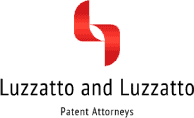A trademark protects, inter alia, letters, names, figures, colors, sounds and combinations thereof with respect to the services or goods of its owners. Contrary to popular belief, a trademark is not just a name or a logo. A trademark is each unique element in a product that allows consumers to identify it with a specific source.
Thus, for example, a trademark may consist of words (for example, Nokia, Red Bull, Google, etc.), a unique caption shape (for example, the M letter of McDonald’s), a unique logo (for example, the famous “Swoosh” logo of Nike or the three stripes of Adidas), or even a particular figure identified with the product (e.g. a figure of a cow identified with “elite” chocolate).
Sometimes, however, the trademark is a more “complex” element of the product: a unique label design (e.g., the famous “Coca-Cola” label), a unique color associated with the product, and even a three-dimensional design of a container (e.g., the unique design of Coca-Cola glass bottles), or of the product itself (for example, the triangular shape of “Toblerone” chocolate).
Moreover, even smells and sounds can be used as trademarks (for example, a trademark for the sound played when a computer is turned on with an Intel processor installed).
As stated, each unique element in a product that allows consumers to identify it is eligible to be used as a trademark.
